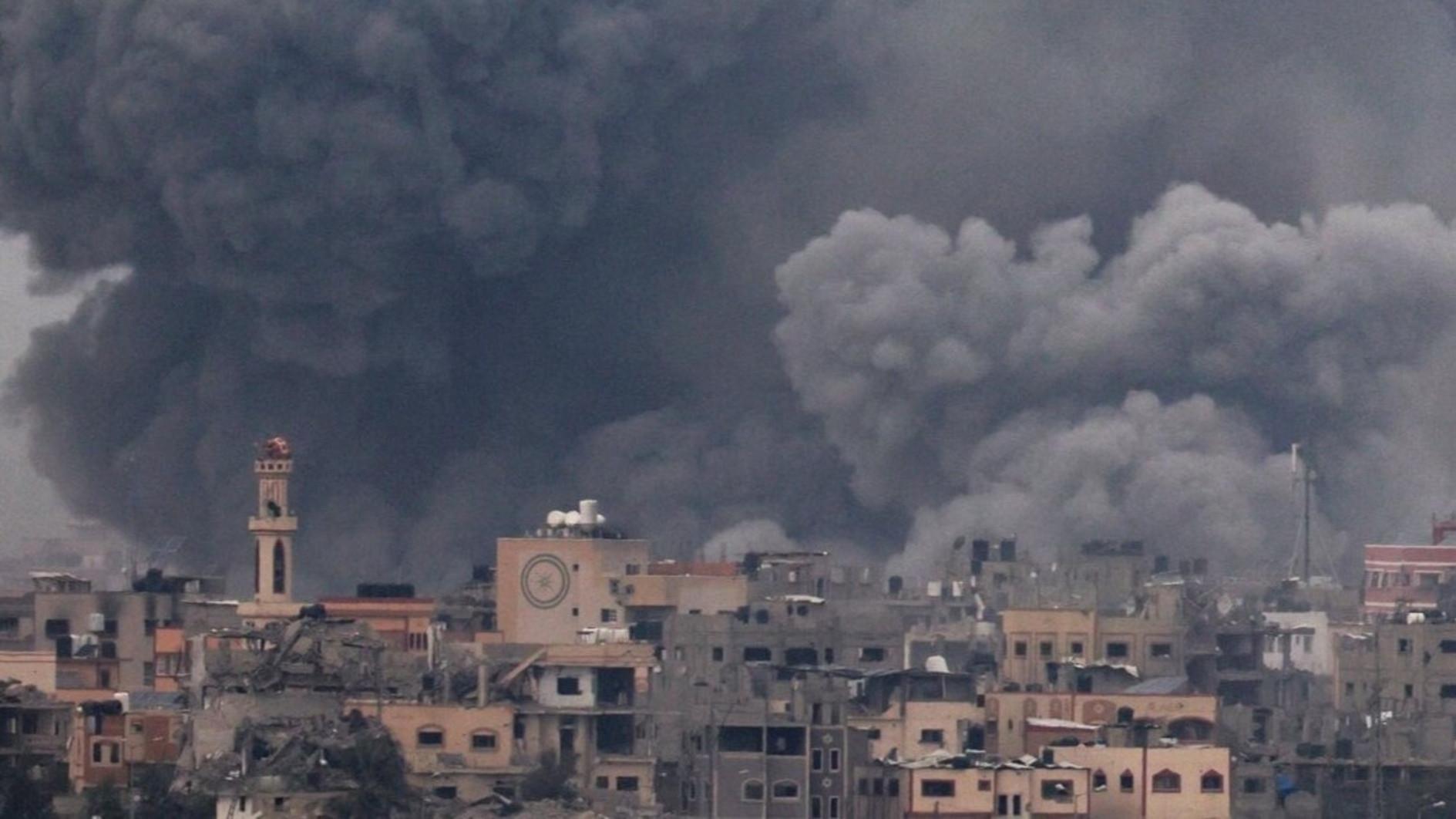Israel strikes Gaza's biggest cities
JERUSALEM

Israel intensified its strikes in Gaza's main cities on Friday, more than two months after Hamas's deadly attack sparked a war that has claimed thousands of lives and left the Palestinian territory in ruins.
The death toll in Gaza has risen 17,000, mostly women and children, the Hamas-run health ministry said, with vast areas reduced to a rubble-strewn wasteland of bombed-out and bullet-scarred buildings.
Early Friday, the health ministry reported another 40 dead in strikes near Gaza City, and "dozens" more in Jabalia and Khan Yunis.
The Palestinian poet Refaat Alareer, one of the leaders of a young generation of authors in Gaza who chose to write in English to tell their stories, was killed in an Israeli strike, his friends said overnight Thursday.
Israeli forces have encircled major urban centres as they seek to destroy Hamas over its unprecedented attack on October 7, when militants broke through Gaza's militarised border to kill around 1,200 people and seize hostages, 138 of whom remain captive, according to Israeli figures.
In a Thursday phone call with Israeli Prime Minister Benjamin Netanyahu, US President Joe Biden "emphasised the critical need to protect civilians and to separate the civilian population from Hamas", the White House said in a statement.
Biden also called for "corridors that allow people to move safely from defined areas of hostilities".
Backed by air power, tanks and armoured bulldozers, Israeli troops are fighting in Khan Yunis, the biggest city in southern Gaza, as well as in Gaza City and Jabalia district in the north.
Israeli Prime Minister Benjamin Netanyahu said Thursday troops had closed in on the Khan Yunis home of Hamas's Gaza chief Yahya Sinwar, 61, vowing "it is only a matter of time until we find him".
Israeli television stations aired footage Thursday of blindfolded Palestinian men wearing only underwear, guarded by Israeli soldiers in Gaza, setting off strong reactions on social media.
"We are investigating to see who is linked to Hamas and who is not," Israeli army spokesman Daniel Hagari said at a press conference.
'We are dead already'
The fighting has pushed Gazans south, turning Rafah near the Egyptian border into a vast camp for many of the 1.9 million displaced by the conflict -- 80 percent of Gaza's population.
"Two months on the road, moving from one place to another. These are the hardest two months we have experienced in our lives," said Abdallah Abu Daqqa, displaced from Khan Yunis to Rafah.
Air strikes have followed them.
Eight more hit Rafah overnight. AFP journalists saw around 20 corpses in white body bags, including a child, at its Nasser hospital, while men gathered nearby to pray.
The mass civilian casualties in the conflict have sparked global concern, heightened by dire shortages caused by an Israeli siege that has seen only limited access for food, water, fuel and medicines.
Israel has approved a "minimal" increase in fuel supplies to prevent a "humanitarian collapse and the outbreak of epidemics".
UN humanitarian chief Martin Griffiths said there were "promising signs" Israel may open the southern Kerem Shalom crossing to aid deliveries.
Hamas has declared a "state of famine" in northern Gaza, saying no aid has arrived there since December 1.
Israeli rights group B'Tselem said the "minuscule amount of aid" allowed into the territory was "tantamount to deliberately starving the population".
"We are dying here, without even the need for rockets and bomb strikes. We are dead already, dead from hunger, dead from displacement," said Abdelkader al-Haddad, a Gaza City resident now in Rafah.
Intense fighting
The Netanyahu government has responded angrily to United Nations Secretary-General Antonio Guterres invoking the rarely used Article 99 of the world body's charter, calling on the Security Council to push for a ceasefire.
The United Arab Emirates has prepared a draft resolution that will be put to a vote at the Security Council on Friday, said the delegation from Ecuador, which chairs the council this month.
















